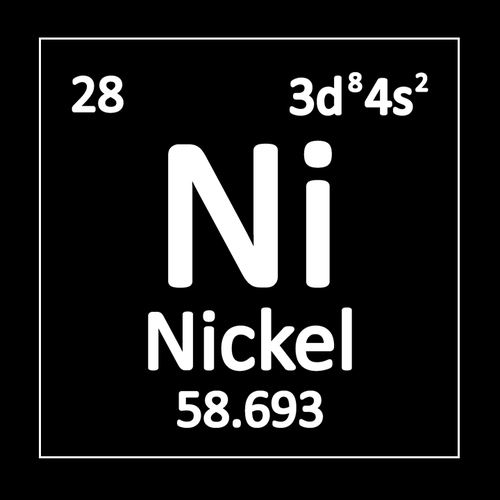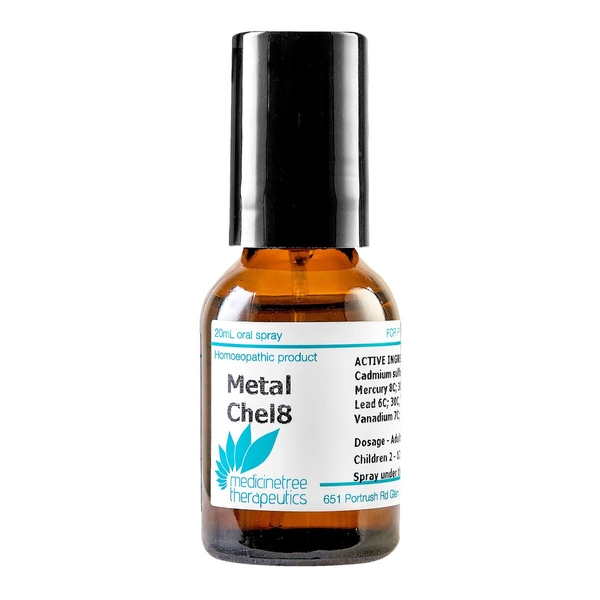
Nickel
Scientific names: Nickel, Ni, atomic number 28
Alternative names: Chlorure de Nickel, Nickel Chloride, Nickel Sulfate, Nickelous Sulfate, Níquel, Numéro Atomique 28, Oligo-Élément, Sulfate de Nickel, Sulfate Nickeleux, Trace Element
Actions: Antidiabetic, Cardiovascular, Cell cycle, Epigenetic, Hypoxic, Immune
Background
Nickel is a hard, silver-white metal found in soil, water, and foods such as nuts, dried beans, and chocolate. The body needs very small amounts of nickel.
Nickel is an essential nutrient in some chemical processes in the body. Its precise functions in the body are not well understood. Nickel is a common trace element in vitamin supplements.
People use nickel for preventing nickel levels in the blood from getting too low (nickel deficiency). It is also used for low levels of healthy red blood cells (anemia) due to iron deficiency, osteoporosis, and other conditions, but there is no good scientific evidence to support these uses.
Nickel is an essential nutrient in some chemical processes in the body. Its precise functions in the body are not well understood. Nickel is a common trace element in vitamin supplements.
People use nickel for preventing nickel levels in the blood from getting too low (nickel deficiency). It is also used for low levels of healthy red blood cells (anemia) due to iron deficiency, osteoporosis, and other conditions, but there is no good scientific evidence to support these uses.
Safety Safety definitions
When taken by mouth: Nickel is likely safe in amounts up to 1 mg daily. Taking more than 1 mg daily is possibly unsafe. Taking amounts slightly above the 1 mg level increases the chances of unwanted side effects. Higher doses are poisonous.
Children: Nickel is likely safe when taken by mouth in doses less than the tolerable upper intake level (UL). This level is based on age and is 0.2 mg daily in children 1-3 years, 0.3 mg daily in children 4-8 years, and 0.6 mg daily in children 9-13 years. Taking higher doses is possibly unsafe.
Kidney disease: People with kidney disease may not be able to tolerate nickel as well as other people. It's best to avoid nickel supplements if you have kidney problems.
Nickel allergy: People who are sensitive to nickel, including those with a history of skin rash after contact with nickel-containing jewelry, coins, stainless steel items, surgical implants, or dental appliances, can develop allergic reactions to nickel taken by mouth. These people should not take nickel supplements.
Special Precautions & Warnings:
Pregnancy and breast-feeding: Nickel is likely safe when taken by mouth in doses less than the tolerable upper intake level (UL) of 1 mg daily. The safety of higher doses is unknown. Stay on the safe side and stick with doses less than 1 mg daily.Children: Nickel is likely safe when taken by mouth in doses less than the tolerable upper intake level (UL). This level is based on age and is 0.2 mg daily in children 1-3 years, 0.3 mg daily in children 4-8 years, and 0.6 mg daily in children 9-13 years. Taking higher doses is possibly unsafe.
Kidney disease: People with kidney disease may not be able to tolerate nickel as well as other people. It's best to avoid nickel supplements if you have kidney problems.
Nickel allergy: People who are sensitive to nickel, including those with a history of skin rash after contact with nickel-containing jewelry, coins, stainless steel items, surgical implants, or dental appliances, can develop allergic reactions to nickel taken by mouth. These people should not take nickel supplements.
Effectiveness
NatMed Pro rates effectiveness based on scientific evidence according to the following scale: Effective, Likely Effective, Possibly Effective, Possibly Ineffective, Likely Ineffective, Ineffective, and Insufficient Evidence to Rate.
Likely effective Effectiveness definitions
- Preventing nickel levels in the body from getting too low (nickel deficiency). Taking trace amounts of nickel by mouth in a supplement is effective for preventing nickel deficiency.
Dosing & administration
Nickel is a trace mineral. Drinking water and food are the main sources of nickel exposure, with the average American diet containing about 300 mcg daily. It is also found in trace amounts in many vitamin supplements. But there is no known daily required amount of nickel. Speak with a healthcare provider to find out what dose might be best for a specific condition.
Interactions with pharmaceuticals
Disulfiram (Antabuse)
Interaction Rating=Moderate Be cautious with this combination.
Disulfiram might decrease how much nickel the body absorbs, making nickel supplements less effective.
Interactions with herbs & supplements
Vitamin C: Vitamin C can reduce the amount of nickel absorbed from the intestine. It's not clear how important this finding is to health.
Interactions with foods
The body's ability to absorb nickel is reduced by some foods, including milk, orange juice, tea, and coffee. Also, a chemical called phytate, which is found in grains, legumes, seeds, and soy, can bind with nickel, making it more difficult for the body to absorb. But it's not clear if this is a big concern.
Products
View all productsPer 0.52 mL:
- Nickel
- Aluminium oxide
- Cadmium sulfate
- Cobaltum metallicum
- Copper
- Iridium metallicum
- Mercurius solubilis (Merc sol)
- Palladium
- Plumbum metallicum (Lead)
- Stannum metallicum (Tin)
- Tellurium
- Uranium nitrate
- Vanadium metallicum
Practitioner product
vital.ly has licensed monographs from TRC Healthcare.
This monograph was last reviewed on 19/02/2024 11:00:00 and last updated on 09/12/2014 00:23:34. Monographs are reviewed and/or updated multiple times per month and at least once per year.
Natural Medicines disclaims any responsibility related to medical consequences of using any medical product. Effort is made to ensure that the information contained in this monograph is accurate at the time it was published. Consumers and medical professionals who consult this monograph are cautioned that any medical or product related decision is the sole responsibility of the consumer and/or the health care professional. A legal License Agreement sets limitations on downloading, storing, or printing content from this Database. No reproduction of this monograph or any content from this Database is permitted without written permission from the publisher. It is unlawful to download, store, or distribute content from this site.



